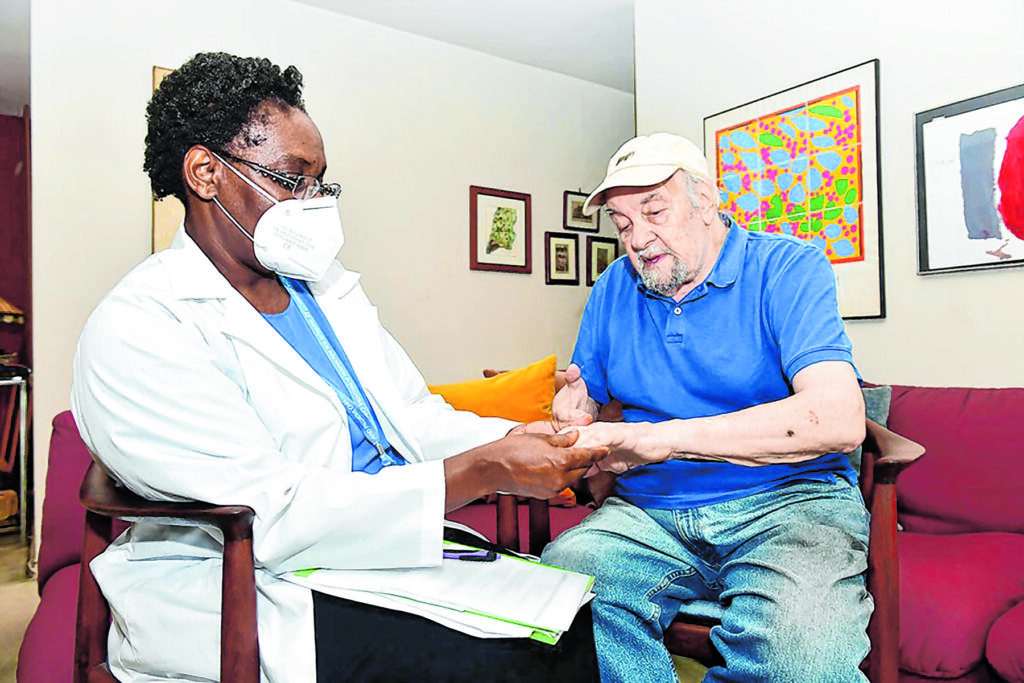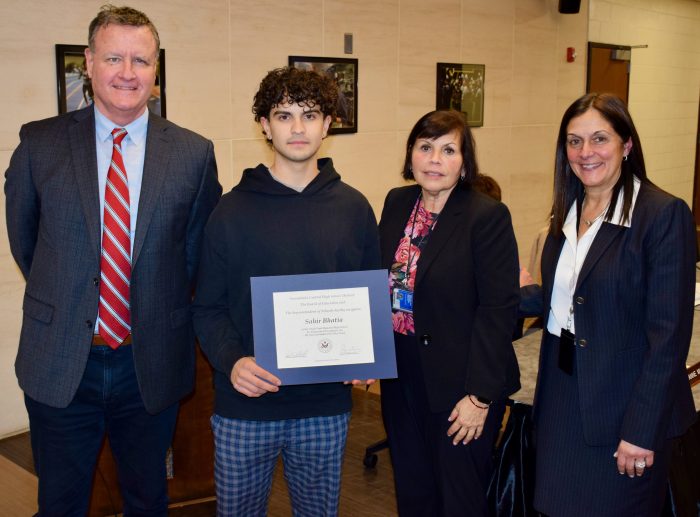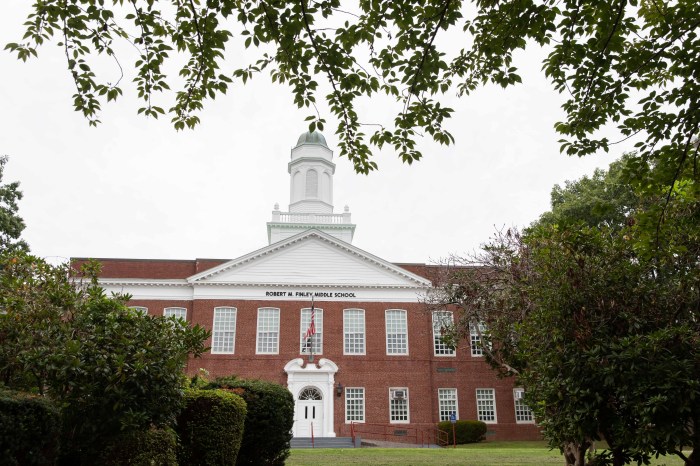
Akunesokwu “Neso” Obiora, RN, MSN, FNP-BC, ACHPN, a hospice and palliative care nurse based in Elmont, was recently awarded for her “unparalleled patient care and advocacy” by POCN, representing the largest Nurse Practitioner/Physician Associate network in the U.S.
Nurse practitioner Obiora received the Q3 Nurse Practitioner/Physician Associate Community Advocacy Award, which POCN said in a press release was in acknowledgement of Obiora’s exceptional care for patients, her “inspiring career path,” and her dedication “to the advancement of the nurse practitioner (NP) and physician associate (PA) professions.”
“Neso is one of the premier examples of why NPs and PAs are central to our communities and health profession,” said Richard Zwickel, Founder and CEO of POCN, in a statement. “She brings an unparalleled perspective to patient care and advocacy, making a real difference in the lives of her patients and their families. We want to extend a sincere congratulations to Neso on this well-deserved recognition.”
In an interview with Nassau Illustrated News, Obiora explained that her journey toward this specalized area of medicine began around 2006, after she moved from Nigeria to New York with her family and a bachelor’s degree in communication.
“Like many immigrants, I found a job in healthcare because I wanted to help people,” Obiora said. “So I started working with hospice patients on Long Island, and went on pursuing my education: I got my LPN, became a registered nurse, got my NP degree, and am now a certified hospice and palliative care nurse practitioner.”
Whether she’s visiting patients in their Nassau and Queens County homes, as she does most days, or is doing facility-based visits in our area, Obiora uses her expertise to treat patients according to a holistic, collaborative plan she develops along with other members of patients’ care teams. Palliative care is an approach that improves the quality of life of patients, and their families, who are facing problems associated with life-threatening illness, whether physical, psychological, or social. Like hospice care, designed for patients’ end of life, it also takes numerous factors into account in order to improve quality of life.
“Meeting patients in their homes is very important, as it gives you a holistic view and assessment of patients. You’re able to see their living environment, the community they’re associating with, their values, and even some family dynamics,” Obiora said. “This will help develop a plan of care that will meet the individual patient’s needs, and will really help to improve the quality of life. Especially when you’re working as a palliative practitioner, you are working in collaboration with the patient’s referring physician. So together you are able to build a plan of care that will meet the patient’s need.”
When asked about the challenges faced in her field of medicine, Obiora said they’re the same as in the wider healthcare industry. “There’s a shortage of workers. Sometimes you’re required to go beyond your bounds to assist a patient. We’re not only doing clinical work, but also assisting them personally.”
“My hope is that sometime soon there will be some stability in the healthcare industry. Also that the government ensures that more clinicians, nurses, and other healthcare providers are being trained.”
Obiora said she hasn’t been able to go back and visit Nigeria since moving to the U.S., but that her husband travels there nearly every year, which helps her family stay connected. While caring for her children, caring for patients, and furthering her education didn’t leave much time for travel, Obiora’s hard work has led to rewards in other ways.
“I felt very honored to be nominated, and humbled to win the award. It’s a wonderful recognition and means a lot to me,” she said.
“I want to use this opportunity to say thank you to POCN for their work and for the award, and also to encourage the caregiving community to continue doing what we do and giving patients high-quality care in their homes.”






























